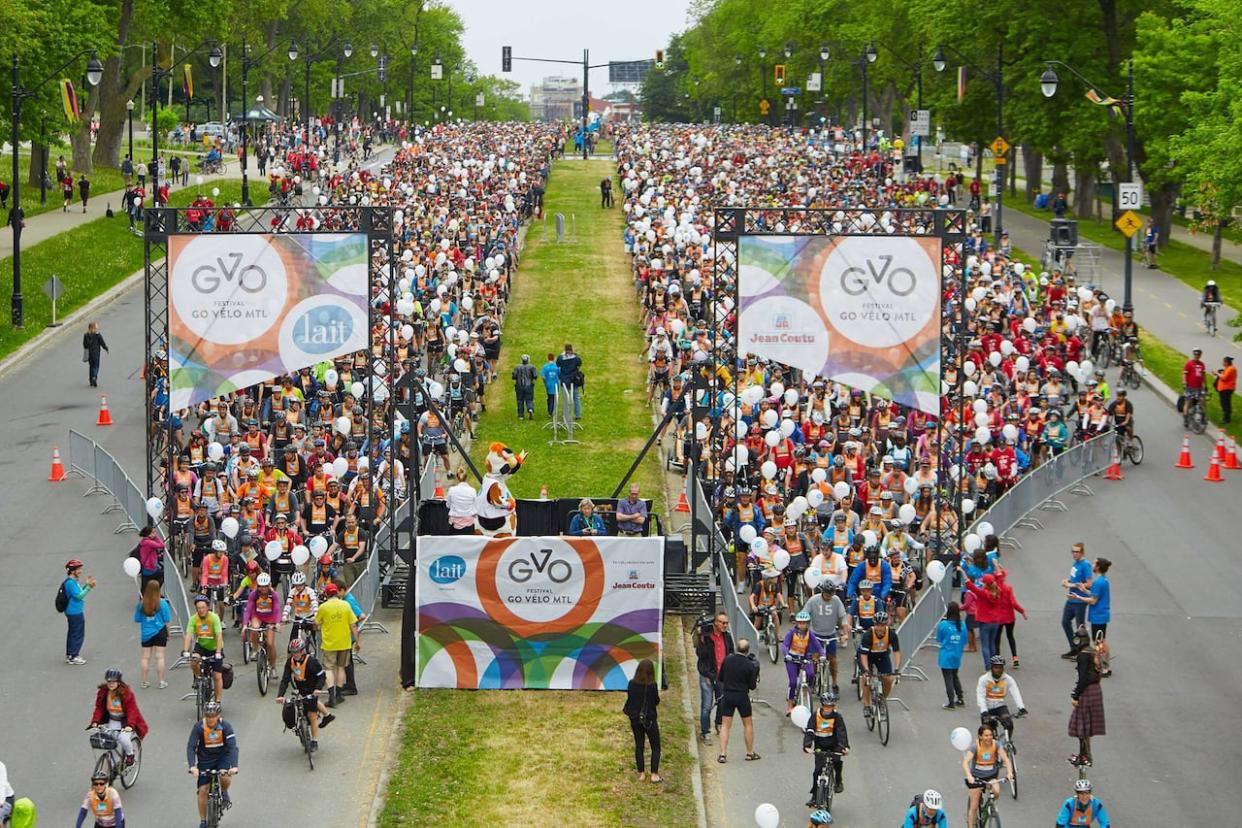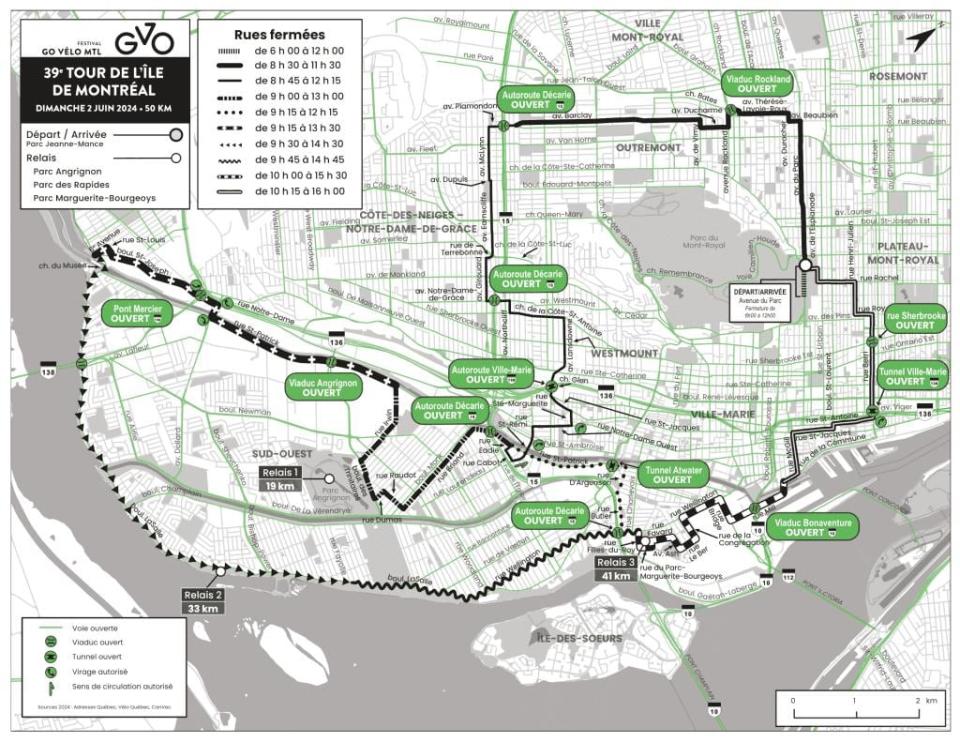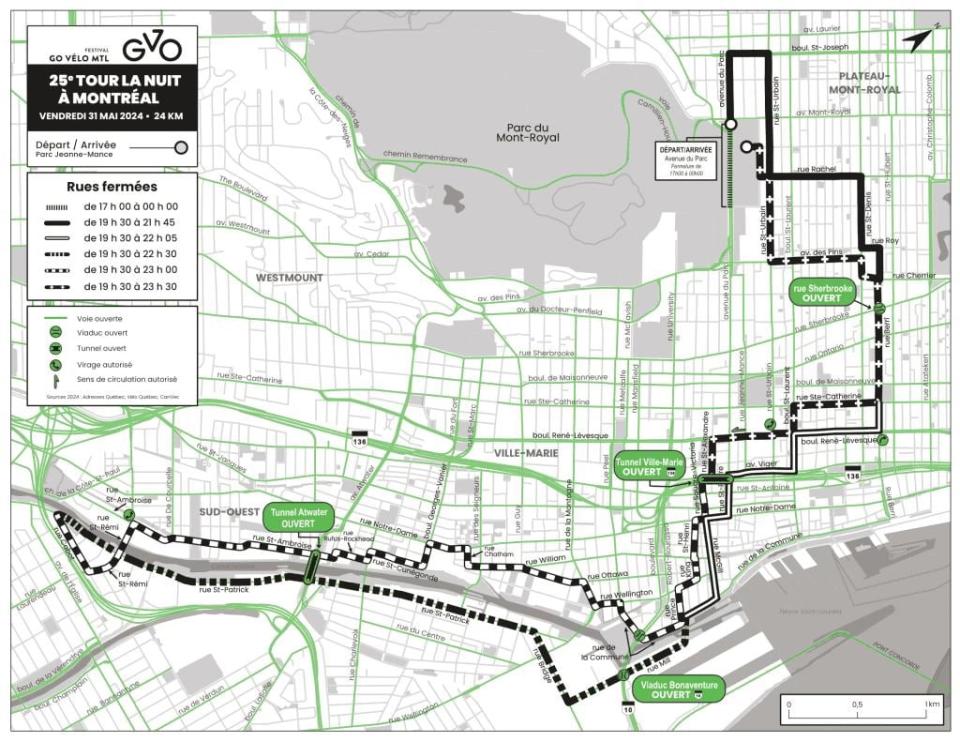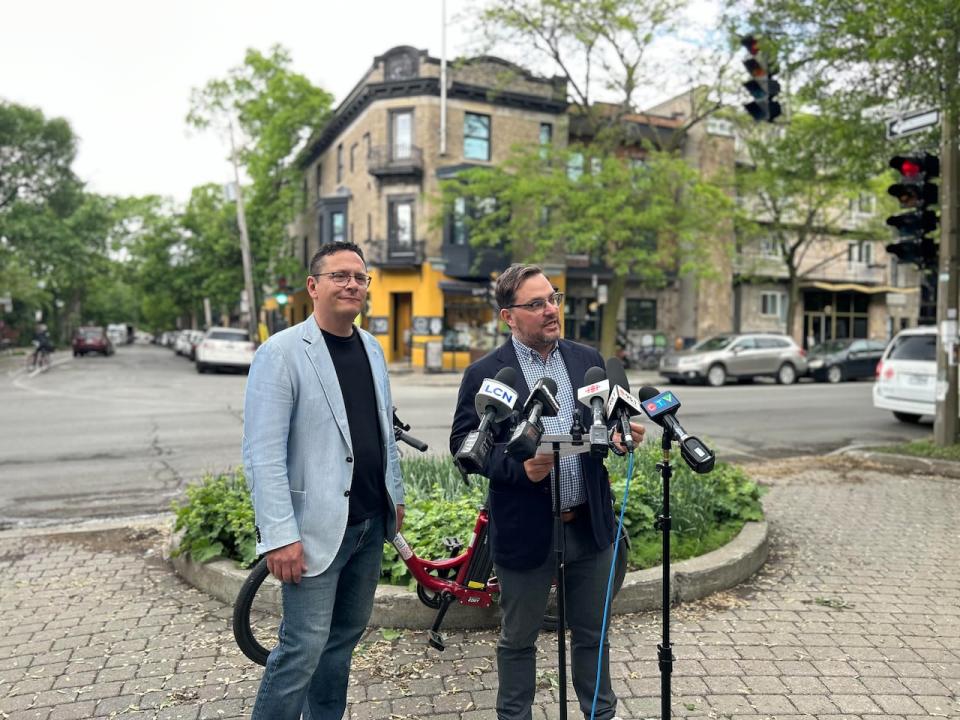Beloved by cyclists but reviled by some drivers, Tour de l'Île strives for peaceful co-existence

Tens of thousands of cyclists will take over Montreal streets this weekend for the annual Festival Go Vélo Montreal, featuring the Tour la Nuit event Friday night and the Tour de l'Île Sunday.
The Tour de l'Île will see closures in the Plateau-Mont-Royal, Rosemont–La Petite-Patrie, Outremont, Côte-des-Neiges–Notre-Dame-de-Grâce, Sud-Ouest, LaSalle, Lachine, Verdun and Ville-Marie boroughs, as well as in Westmount.

The route for Sunday's Tour de l'Île stretches through several neighbourhoods, mostly in the area around Mount Royal and in southwestern Montreal. (Vélo-Quebec)
For the the Tour la Nuit, roads will be closed in the Plateau-Mont-Royal, Ville-Marie and Sud-Ouest boroughs.

The Tour la Nuit Friday night is concentrated in the Plateau-Mont-Royal, Ville-Marie and Sud-Ouest boroughs. (Vélo Quebec)
Parking restrictions for the Tour la Nuit begin Friday afternoon in some areas as of 1 p.m. and continue until midnight. More parking restrictions for the Tour de l'Île will begin at 12:01 a.m. Sunday and last until 6 p.m.
The events start and end at Jeanne-Mance park.
"We do everything in order to make sure it's going to be a fiesta for every cyclist in town, but we also want to make sure that motorists know about these events," city spokesperson Philippe Sabourin said at a news conference Tuesday.
"Our objective is to have the least impact possible," Vélo-Quebec president Jean-François Rheault added.
Rheault said people planning their routes for the weekend can consult velo.qc.ca/infocirculation for maps and schedules of road closures. He also suggested downloading the Waze mobile application for real-time updates on street closures and traffic conditions.
"There will be options to move around by car Friday night or Sunday. It might be a different option than you're used to," Rheault said.
"So take five minutes to look at the map and you might avoid many minutes or hours of traffic."
Organizers say benefits of event outweigh inconvenience
Rheault said Vélo-Quebec gets complaints every year from drivers who are upset about inconvenience caused by the events.
He said that's why organizers spend months working to minimize traffic disruptions and ensure road closures are well-publicized in advance.

Vélo-Quebec president Jean-François Rheault says the Tour de l'Île is a life-changing event for some people that inspires them to take up cycling on a regular basis. (Steve Rukavina/CBC News)
Ultimately, Rheault said the benefits far outweigh the inconveniences, and extend beyond just a day of fun.
"Some participants will be experiencing the city by bike for the first time," Rheault said.
"By allowing families and kids to experience the city streets, it can change their lives. When we ask participants, 'Do you cycle more after the Tour de l'Île?' They say yes," he said.
One of the challenges for people trying to get around the city on Tour de l'Île weekend is that the routes change every year.
Rheault said that's the most fair and practical system
"We don't want to have negative impacts on the same citizens every year," he said.
"The city is dynamic. There's a lot of things that are changing — road works, construction, festivals," Rheault said.
He said Vélo Québec takes all this into account as it plans its routes, both to reduce the festival's impact and give participants a better experience.


